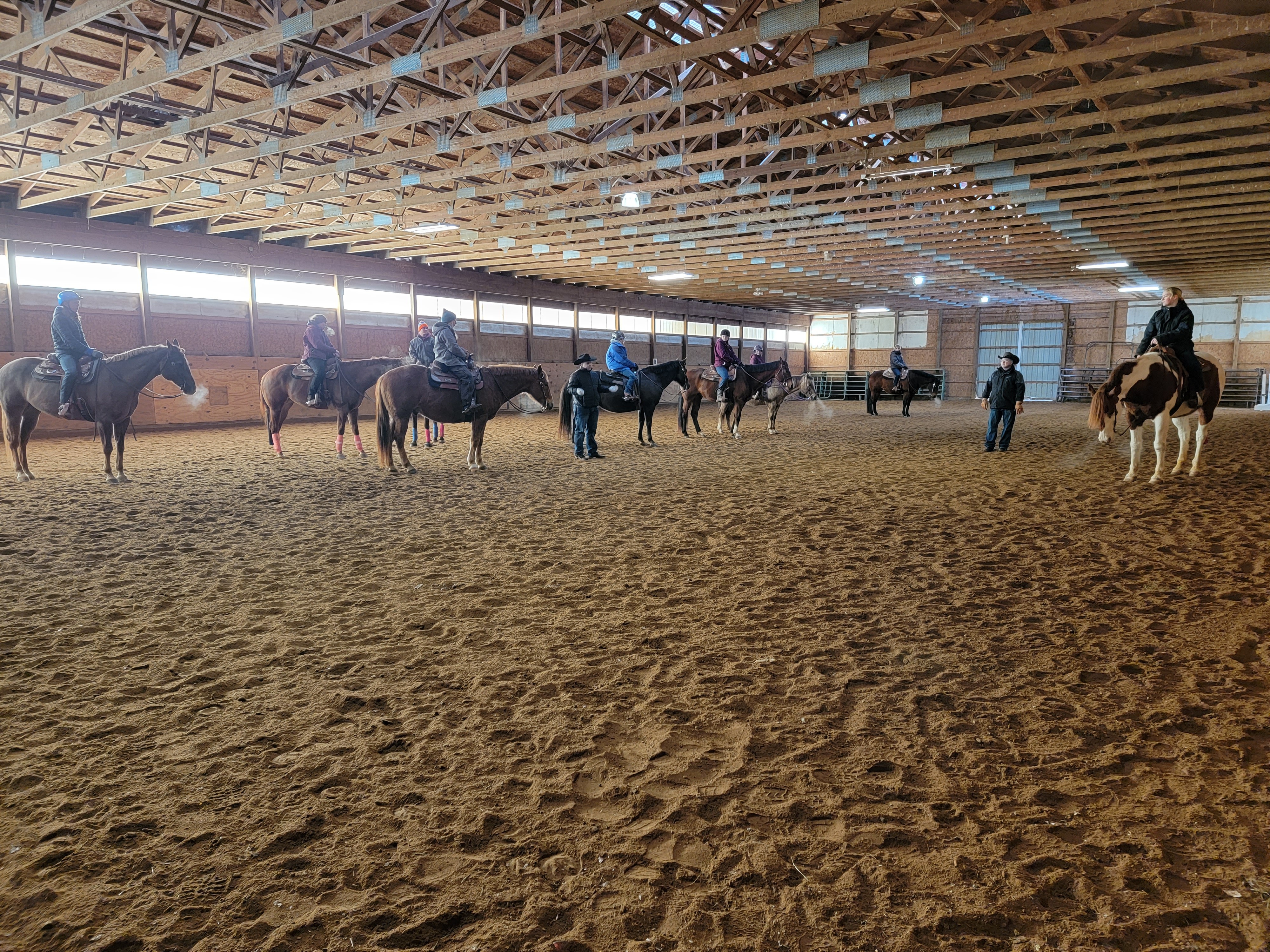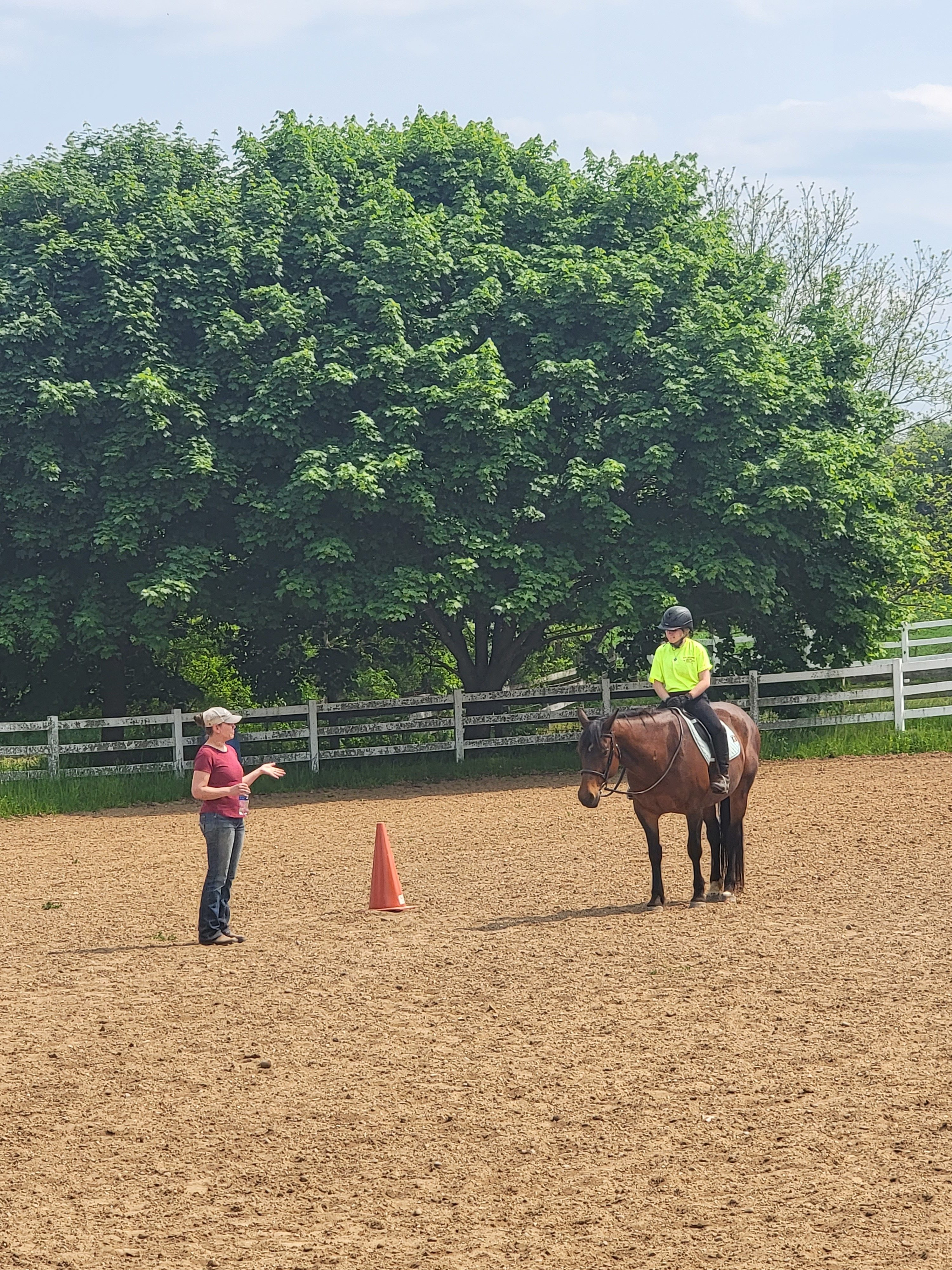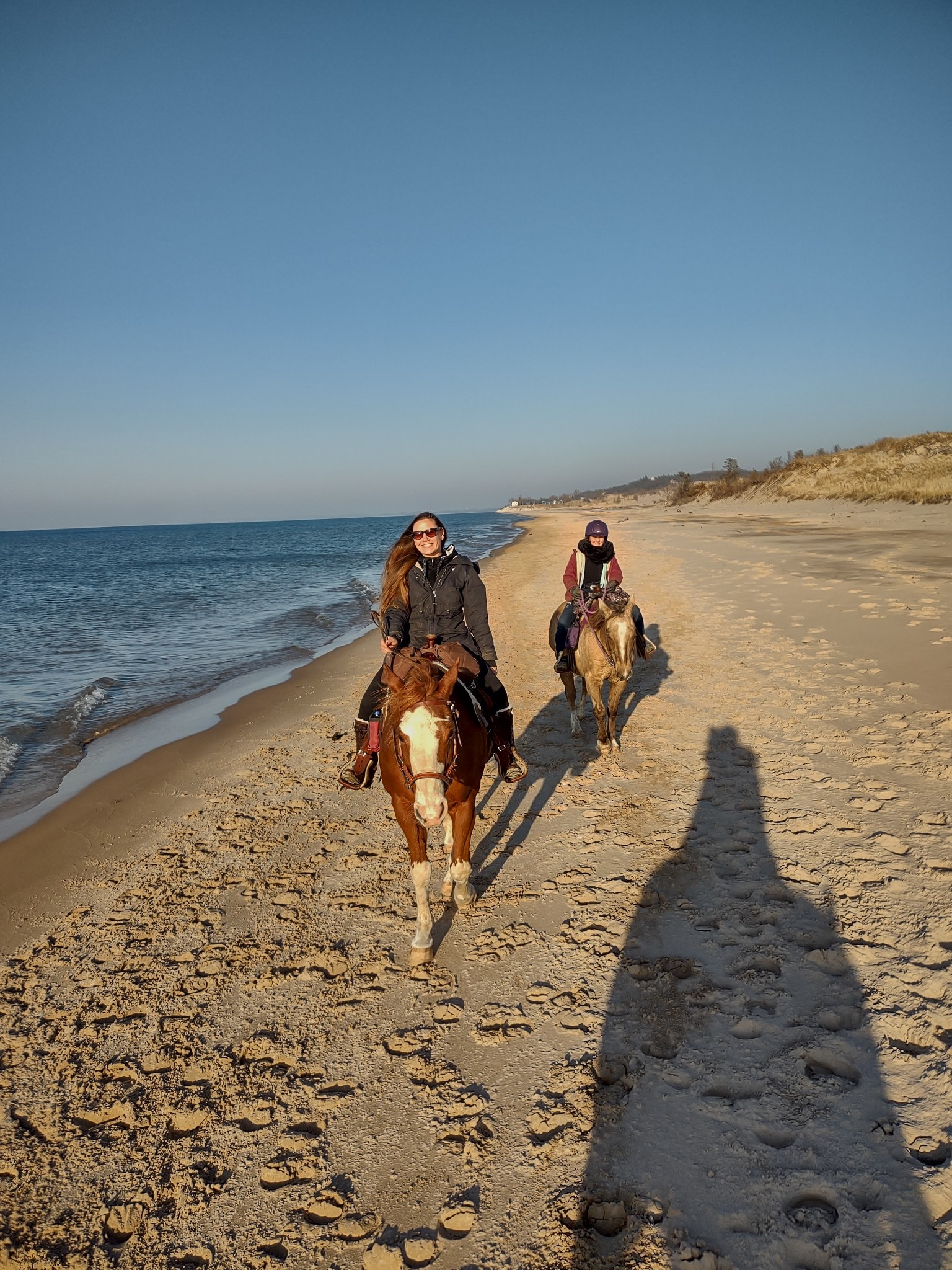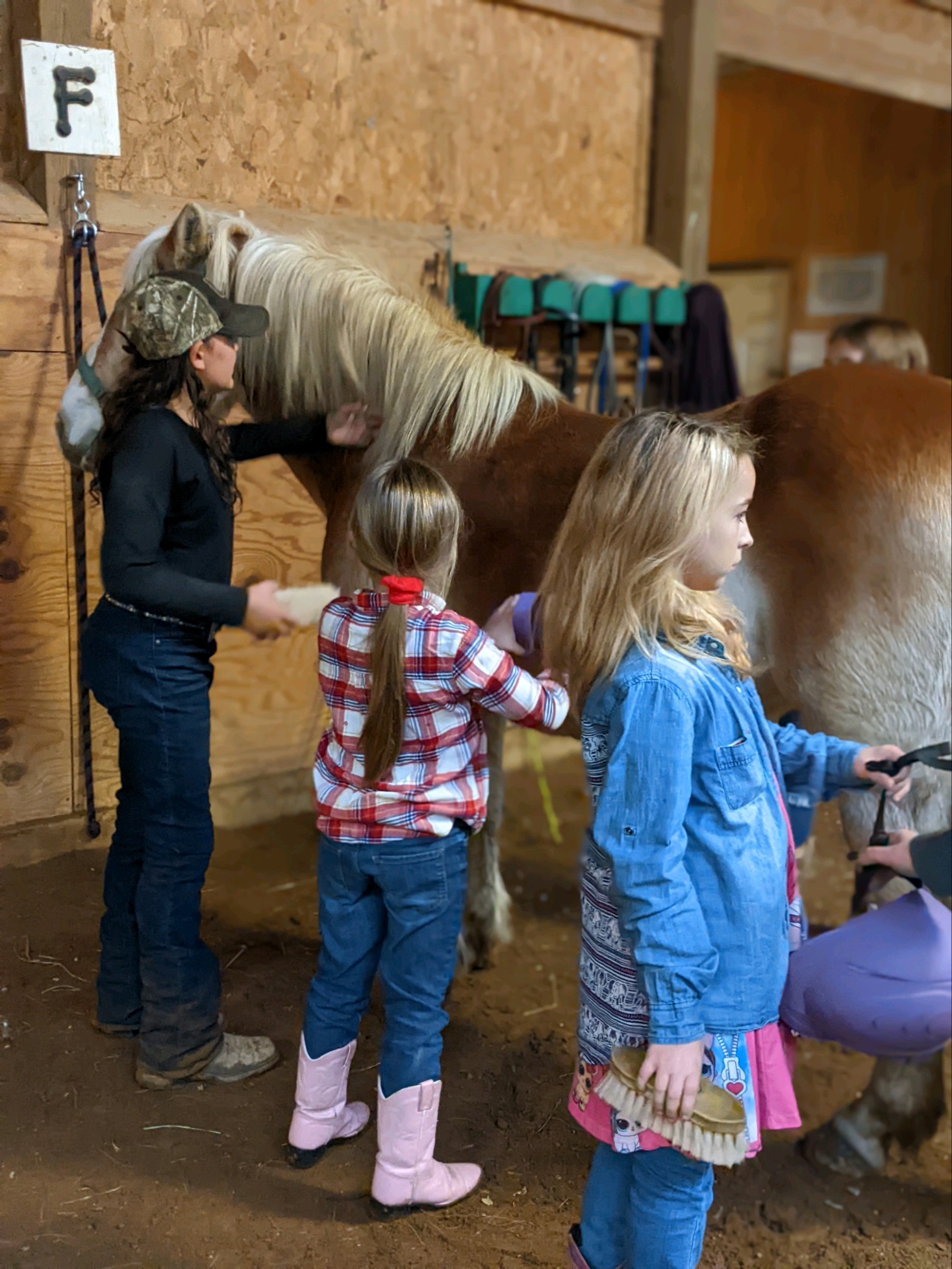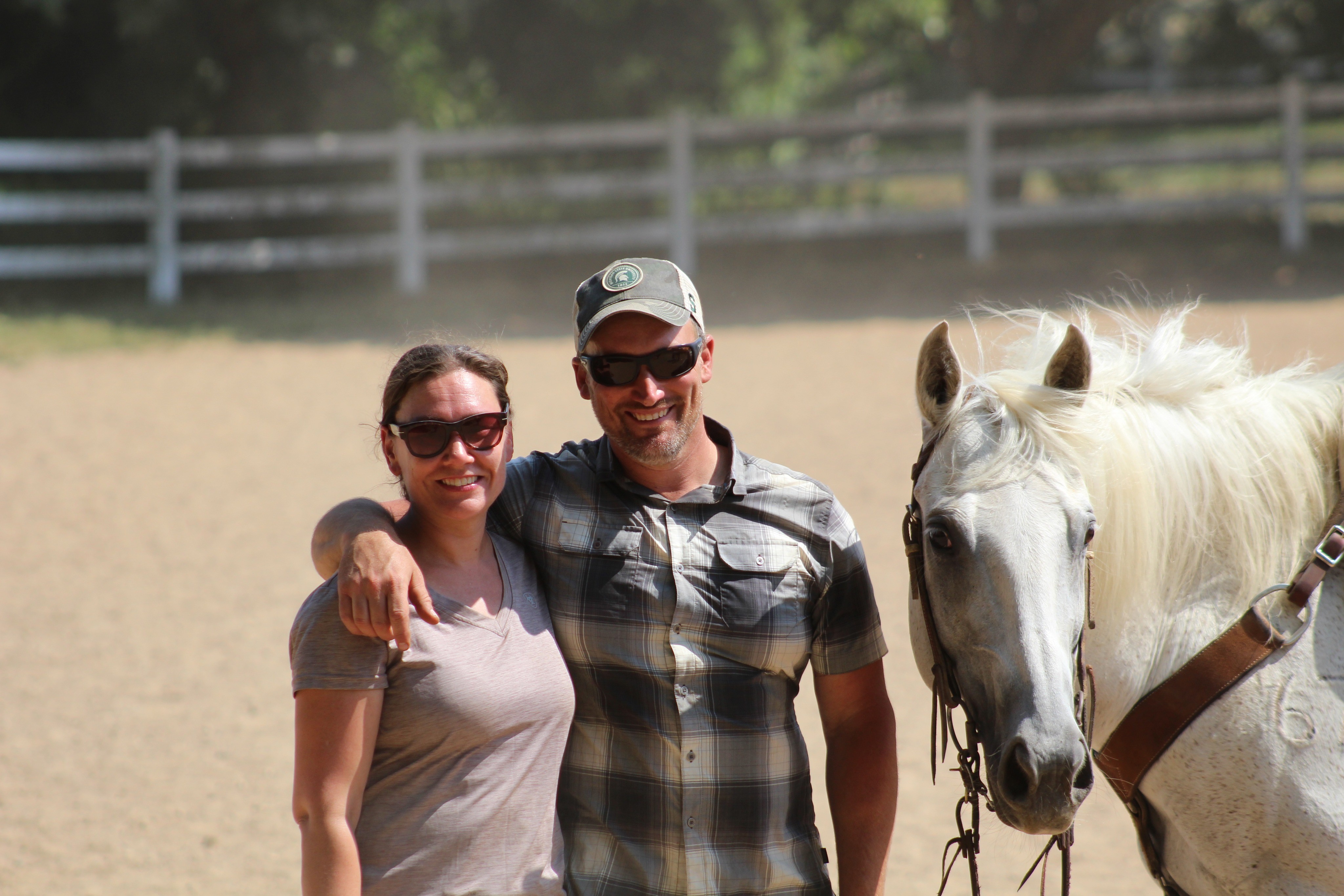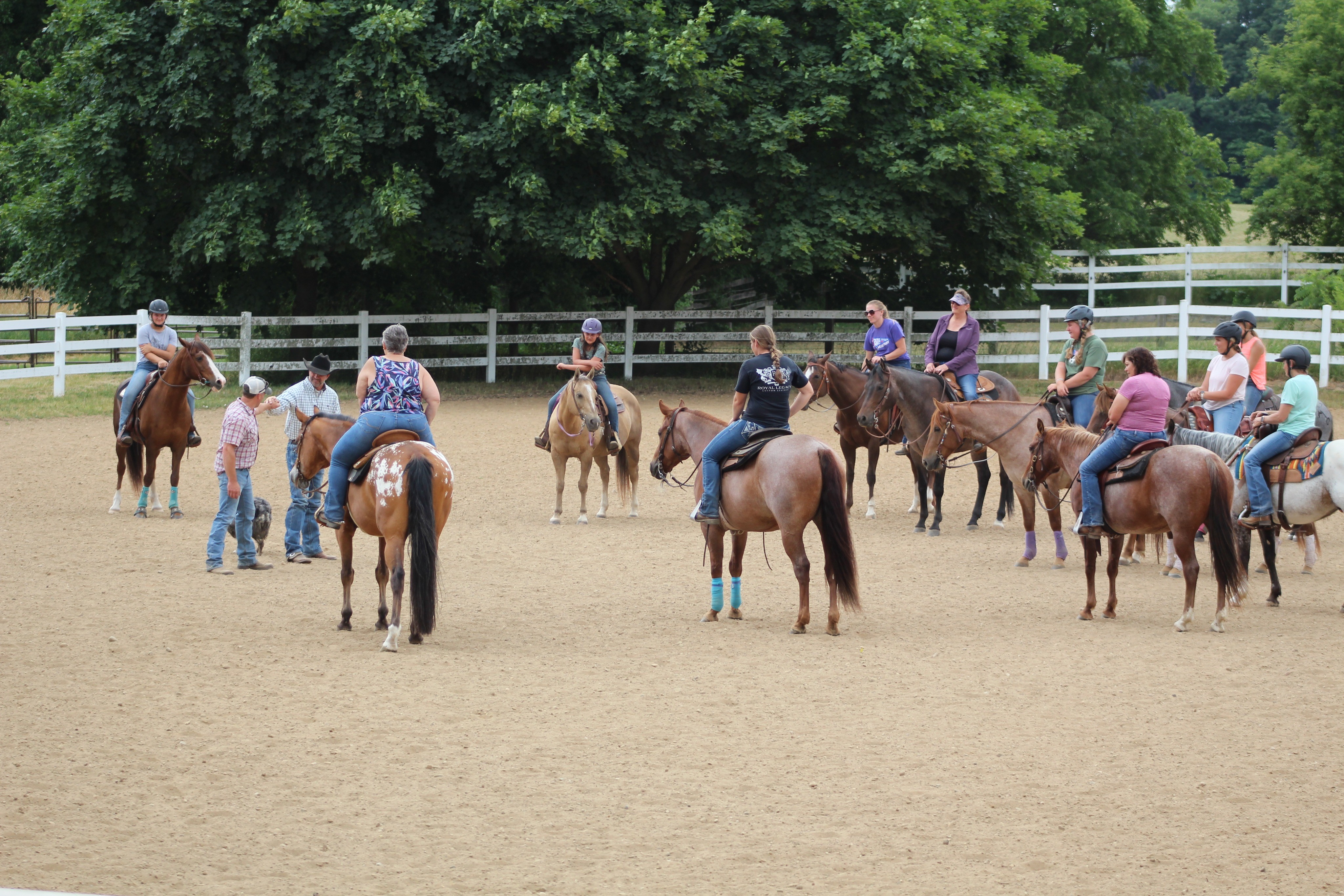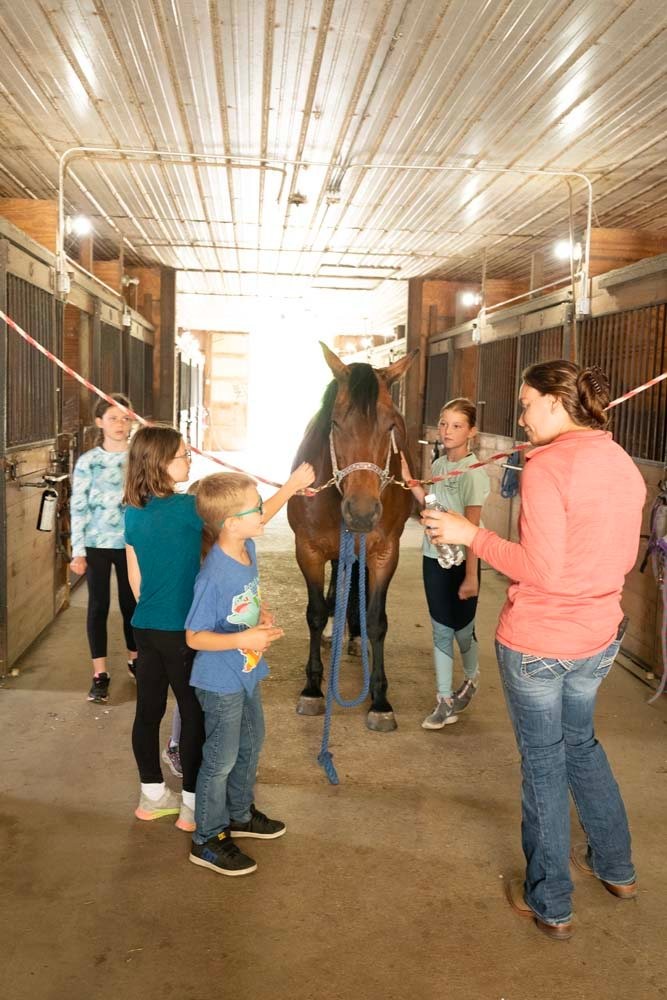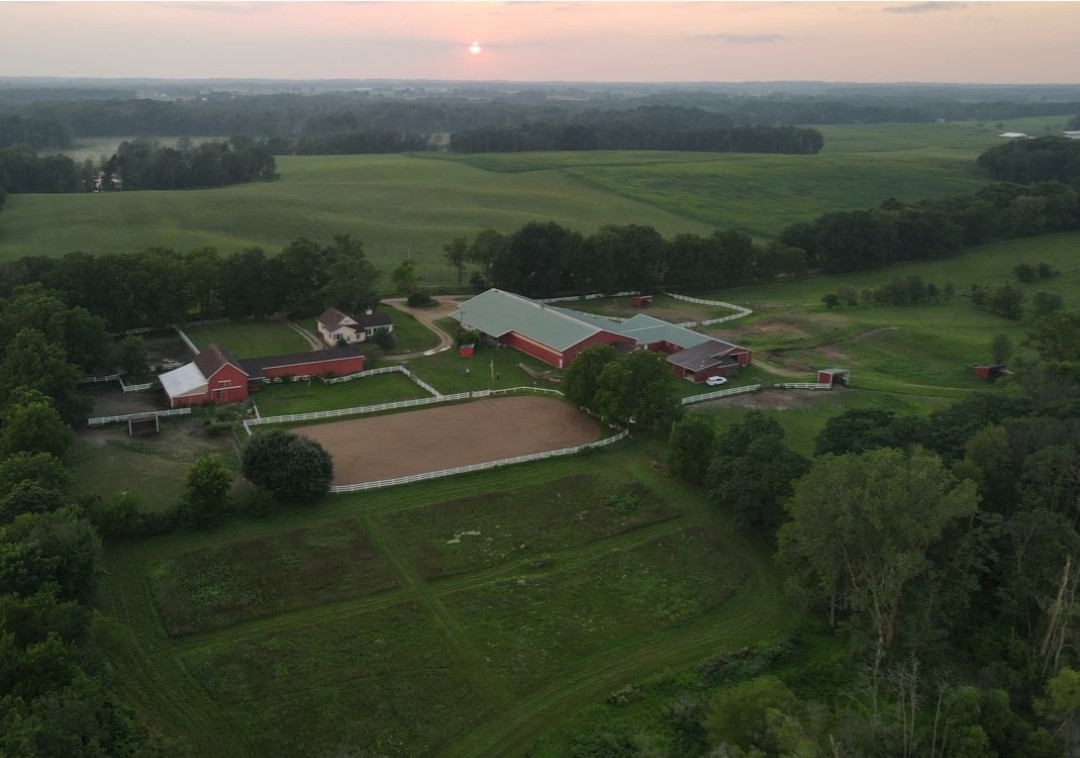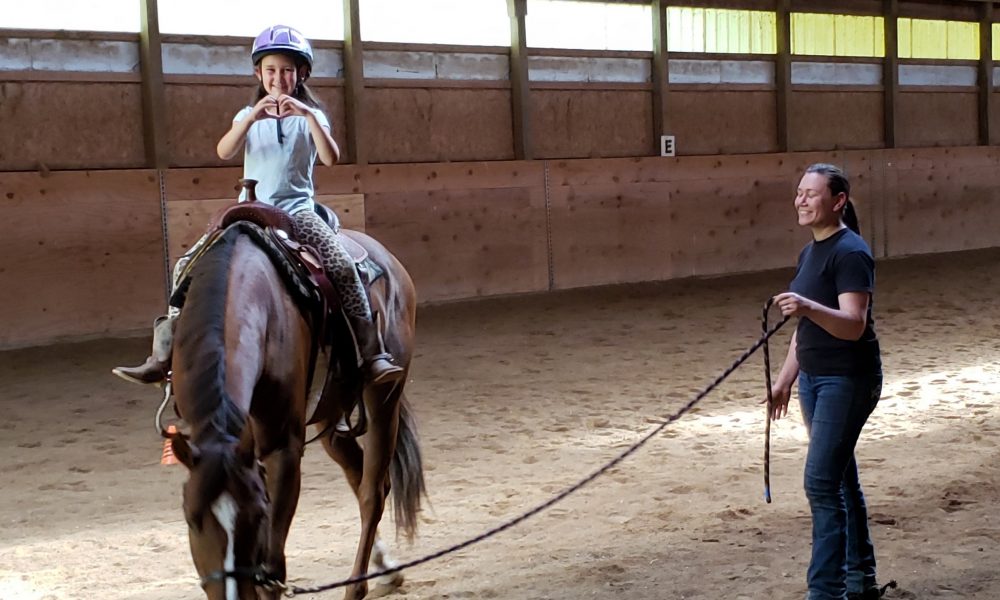

Today we’d like to introduce you to Nicole Scovel.
Hi Nicole, so excited to have you on the platform. So, before we get into questions about your work life, maybe you can bring our readers up to speed on your story and how you got to where you are today.
I grew up riding and owning horses. After learning from a few really good riding instructors and having opportunities to learn from world-class clinicians, I developed an interest in teaching. I was able to give lessons here and there on my own horses and help others with their own horses on occasion. I spent one summer teaching in a horse camp setting, which really influenced my ideas about horse and rider safety. College led me away from the equine industry and then to a few jobs outside of the industry, but I always felt a pullback toward the horse world, staying involved by coaching for high school equestrian team and volunteering at 4-H events.
In 2016, my husband and I decided to buy a horse farm – in Michigan it can be tough to ride year-round if you don’t have a facility with an indoor riding arena. Around the same time, my daughter was old enough to start really riding on her own, so I started giving her lessons and enjoyed it so much that I started teaching lessons to a few of her friends on the weekends. I didn’t really intend on leaving my “day job” to run the farm and teach lessons, but with all of the craziness of Covid, job changes, and school changes, it just made sense!
I am currently teaching lesson students – some on their own horses, and some on my lesson horses, hosting “pony camp” events and pony parties, plus looking after several boarded horses and hosting a few clinics a year at the farm – we have been fortunate enough to have some big names like Dan James and Josh Lyons teach right here at our farm!
I am a big believer in the idea that there is always more to learn when it comes to horses, so I enjoy learning by watching and participating in clinics and lessons as much as I enjoy teaching! It is a great way to learn new things and sometimes new ways to teach things.
I love seeing students learn and grow and develop skills and confidence that they will use in and out of the barn. It is a fun and exhausting job but also very rewarding!!!
I’m sure it wasn’t obstacle-free, but would you say the journey has been fairly smooth so far?
It has definitely been a challenging road building an equine business. The horse world is an expensive world! Horse farms are expensive and difficult to get loans for; good safe horses are expensive and hard to come by, and so is the equipment we use to ride them. They are large animals that consume a lot of feed and require regular veterinary and farrier care, so there is a lot of overhead in a horse-based business. A good lesson horse is a good teaching partner, and it is amazing how they can hone in on a rider’s strengths and weaknesses and create opportunities for an instructor to help the rider strengthen their weak spots. They also have a sixth sense for people who may need a confidence boost and may allow things to slide in order to put their rider at ease. Not every horse is cut out to be a lesson horse and the ones who are rarely come up for sale. When they do, they are usually priced too high for most lesson programs to purchase (and rightfully so – good horses are worth their weight in gold!). We have been fortunate to be able to “care lease” a few of our lesson horses, which means that we provide housing, feed, and care for the horse, and we are allowed to use the horse for lessons, thus alleviating the financial burden of boarding the horse for the owner, and sparing us the huge expense of purchasing a lesson horse. The owner is still able to visit and ride the horse, and via lessons, the horse stays in shape, and we get to teach students, so it is a mutually beneficial arrangement for those owners not interested in permanently parting ways with their beloved horse. I am thankful for owners who allow their lesson-quality horses to be used in this manner because it not only allows me to do what I love but allows more beginner riders a safe start in their horseback riding journey!
The responsibility of keeping horses safe and also keeping small children safe around huge animals can be exhausting – an instructor really needs to be on high alert at all times when kids and horses come together.
Many people don’t understand how physically challenging horseback riding is, so a lot of parents don’t see the importance of a consistent riding lesson schedule. In the beginning, riding once a week is a pretty minimum expectation so that the new rider can build muscle and muscle memory to be able to perform basic maneuvers. Most riders eventually get to a point where they need to be riding multiple times per week in order to perform more advanced maneuvers or ride more challenging horses. Most sports practice several days a week, and horseback riders should, too, however, it can be cost-prohibitive for many people. I often see riders who I wish were able to come ride more frequently so that they could really ride to their full potential, but I have to respect that every family’s budget is different.
Like any other type of farm, a horse farm is a full-time responsibility. Horses still need to be cared for in a snowstorm, 100-degree heat, and everything in between. There are no sick days when you own animals, they still need to be fed, and the barn still needs to be cleaned. When horses are sick, they often require around-the-clock care. I’ve found that there’s no difference between caring for my own horses or someone else’s – it’s difficult not to get attached to any horse you take care of on a daily basis, so caregiver’s fatigue can be a real challenge in this line of work.
Some days running a horse farm is physically and mentally/emotionally draining. You really have to enjoy the animals themselves and find teaching rewarding to make it a worthwhile endeavor.
Owning a horse farm is a lifestyle in itself, and I’m very thankful to have a husband who shares my passion for horses and wanted this lifestyle as well!
Thanks for sharing that. So, maybe next you can tell us a bit more about your work?
As a horseback riding instructor, I focus mostly on beginner to intermediate-level riders. My goal is to give them skills and tools as a rider that they can build off of no matter what riding discipline they choose to try. I want them to be competent and conscientious around and on horses, so they can be as safe as possible. I like to help them develop good horsemanship habits early on so that they don’t have to untrain bad habits later. For beginner riding lessons, I do all private (one-on-one) sessions so that I can help new riders develop comfortably at their own pace – and keep a close eye on them for safety’s sake!
I teach most beginner lessons on my own lesson horses, but I love opportunities to teach people on their own horses, as well. It is really rewarding to watch them grow and develop as a team and become real partners as they achieve their goals.
In addition to lessons, I do offer several “Equestrian for a Day” events throughout the year, where we host a group learning day that starts with children learning about horses and the equipment they use and ends with everyone riding a horse.
Pony parties are also on the menu and are another fun way for horse-crazy kiddos to get up close and personal with our horses.
One of the best parts about this job is that we often get to witness people’s first interaction with or first ride on a horse. Especially with kids, it is such an exciting and magical moment! I love introducing people to our horses and seeing how they interact and connect with one another.
Can you talk to us a bit about the role of luck?
I’m sure both good and bad luck have played a big role in life and business for me. I think planning, timing, and networking have played a huge part as well…or maybe it was just luck all along?
Contact Info:
